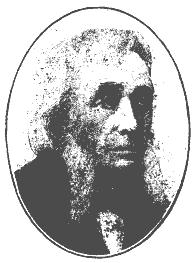Jean Gaspard F?lix Ravaisson-Mollien (French: [?av?s?~ m?lj?~]; 23 October 1813 ? 18 May 1900) was a French philosopher and archaeologist.He was born at Namur. After a successful course of study at the Coll?ge Rollin, he went to Munich, where he attended the lectures of Schelling, and took his degree in philosophy in 1836. In the following year he published the first volume of his famous work Essai sur la m?taphysique d'Aristote, to which in 1846 he added a supplementary volume. This work not only criticizes and comments on the theories of Aristotle and the Peripatetics, but also develops from them a modern philosophical system.In 1838 he received his doctorate, his thesis entitled 'De l'habitude' (On Habit), which was to become a classic text (a metaphysical 'poem' on nature in general apprehended through an intuitive analysis of acquired habit as a particular manifestation of its essential being, much admired by Bergson and Heidegger), and became professor of philosophy at Rennes. From 1840 he was inspector-general of public libraries, and in 1860 became inspector-general in the department of higher education. He was also a member of the Academy of Moral and Political Science, and curator of the Department of Antiquities at the Louvre (from 1870). He died in Paris.In philosophy, he was one of the school of Victor Cousin, with whom he was at issue in many important points. The act of consciousness, according to him, is the basis of all knowledge. Acts of consciousness are manifestations of will, which is the motive and creative power of the intellectual life. The idea of God is a cumulative intuition given by all the various faculties of the mind, in its observation of harmony in nature and in man. This theory had considerable influence on speculative philosophy in France during the later years of the 19th century.Ravaisson's chief philosophical works are: "Les Fragments philosophiques de Hamilton" (in the Revue des Deux Mondes, November, 1840); Rapport sur le stoicisme (1851); La Philosophie en France au dix-neuvi?me si?cle (1868; 3rd ed, 1889); Morale et m?taphysique (1893). Eminent as a philosopher, Ravaisson was also an archaeologist, and contributed articles on ancient sculpture to the Revue Arch?ologique and the M?moires de l'Acad?mie des Inscriptions. In 1871 he published a monograph on the Venus de Milo.See Charles Bernard Renouvier, in L'Ann?e philosophique (Paris, 1868); Dauriac, "Ravaisson philosophe et critique" (La Critique philosophique, 1885, vol. ii.).

Fecha de nacimiento
1813-10-23
Año de nacimiento
1813
Fecha de defunción
1900-05-18
Año de defunción
1900
Era
19th-century philosophy
Región
Western philosophy



Comentar
0